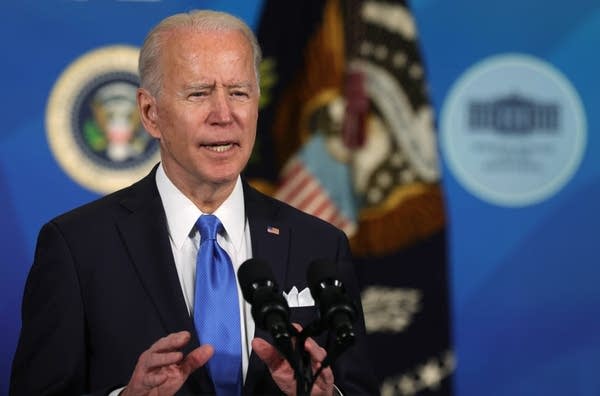Biden sets goal of July 4th to 'mark independence from this virus'

President Joe Biden speaks during an event with the CEOs of Johnson & Johnson and Merck at the Eisenhower Executive Office Building on Wednesday in Washington, D.C.
Alex Wong | Getty Images
Go Deeper.
Create an account or log in to save stories.
Like this?
Thanks for liking this story! We have added it to a list of your favorite stories.


